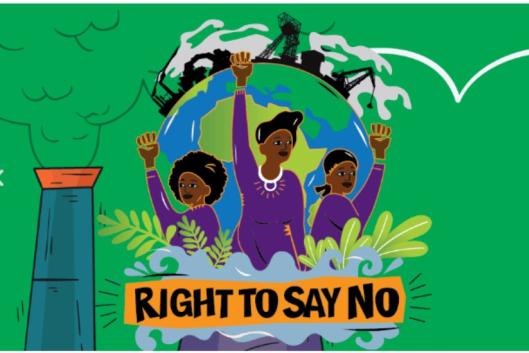International Women’s Day on March 8 is a day to celebrate the achievements made by women in the defence of their rights. It is also a day of struggle, a day to denounce the countless ways in which women’s rights are still being violated all around the world.
In this editorial, we would like to pay special tribute to the women who fight every day of the year for the forests in Asia, Africa and Latin America – forests which, for them, are not merely areas of land and trees, but territories that play an essential role in their social, economic, cultural and spiritual lives. Their defence of their territories and forests infringes on the economic interests who view forests as nothing more than lands to exploit for quick profit, for example, through the extraction of timber. These economic interests destroy forests, even when it is legally prohibited. In many places, this leads to violent reactions.
Laísa Santos is one woman experiencing this situation first hand. She lives in the Brazilian Amazon rainforest, on the first “extractive reserve” created in the country, established in 1997 in the state of Pará. Since then, this community of families who live off of the rainforest has suffered repeated invasions by ranchers, loggers and charcoal producers. Laísa, who has received death threats for her efforts to defend the rainforest, has requested protection through the Brazilian federal government programme established to protect human rights defenders. But after a preliminary assessment, her request was turned down. There is certainly no lack of evidence that the threats made against Laísa are serious: her sister, Maria do Espirito Santo, and brother-in-law, José Cláudio Ribeiro, were murdered in May 2011 for defending the same cause. In recognition of their struggle and sacrifice, they received a posthumous award from the United Nations.
Laísa is a teacher at the local school and a member of the Women Artisanal Extractive Workers Group – an association of women who produce medicinal and cosmetic products made with andiroba oil, which is processed from the nuts of the Carapa guianensis tree. Laísa specialized in raising awareness about the importance of using the rainforest without destroying it. But the threats have radically changed her life: she has lost her freedom of movement.
There are women like Laísa in all countries where there are tropical forests, in Latin America, Africa and Asia. They are struggling to care for and improve the lives of their families and communities, by defending the forests. Laísa and her community are fighting against loggers and ranchers who are invading their territory. In other places, communities are fighting against mining companies, large-scale monoculture plantation companies, oil and gas companies, hydroelectric power companies, etc. – companies that destroy forests and violate the rights of the peoples who depend on those forests and have always cared for and protected them.
To commemorate this International Women’s Day, we call for support and defence of the struggles being waged by these communities, and especially for women defenders of the forests. At the same time, we demand that the governments of countries with tropical forests adopt urgent measures to recognize the rights of forest peoples, including women’s rights, and to protect all the women and men who are threatened or persecuted for defending the forests.
In particular, we urge you to sign this online petition to demand protection for Laísa’s life: http://www.peticaopublica.com.br/?pi=P2012N20715
